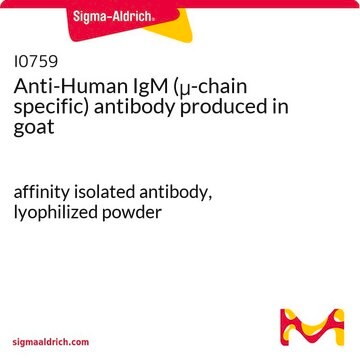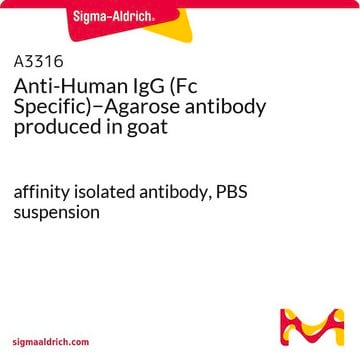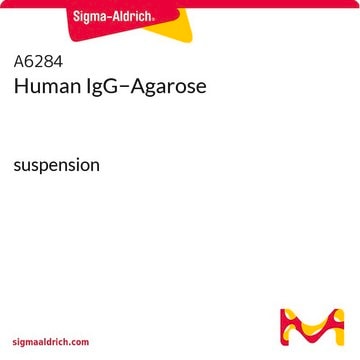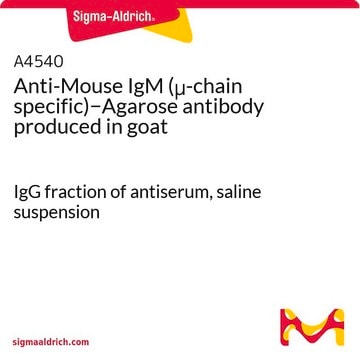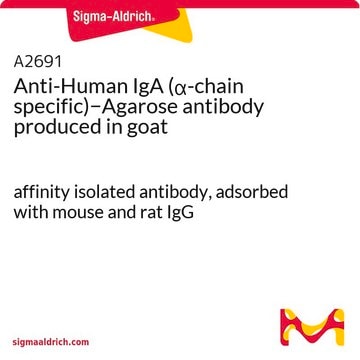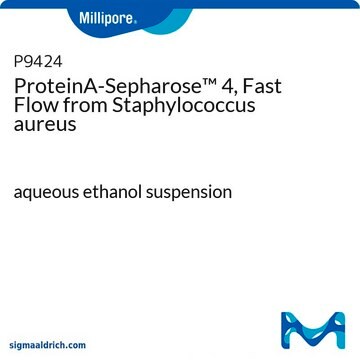A9935
Anti-Human IgM (μ-chain specific)−Agarose antibody produced in goat
affinity isolated antibody, PBS suspension
Sinónimos:
Anti Human IgM Antibody - Anti-Human IgM (μ-chain specific)-Agarose antibody produced in goat, Anti Human Igm Antibody
About This Item
Productos recomendados
biological source
goat
conjugate
agarose conjugate
antibody form
affinity isolated antibody
antibody product type
secondary antibodies
clone
polyclonal
form
PBS suspension
technique(s)
Ouchterlony double diffusion: suitable
immunoelectrophoresis: suitable
capacity
2-3 mg/mL, resin binding capacity (human IgM)
storage temp.
2-8°C
target post-translational modification
unmodified
General description
Cyanogen bromide activated cross-linked beaded agarose is frequently conjugated to proteins such as immunoglobulins to facilitate their use in physicochemical processes such as precipitation, absorption and clarification.
Application
Biochem/physiol Actions
Other Notes
Physical form
Disclaimer
¿No encuentra el producto adecuado?
Pruebe nuestro Herramienta de selección de productos.
Storage Class
12 - Non Combustible Liquids
wgk_germany
nwg
flash_point_f
Not applicable
flash_point_c
Not applicable
Certificados de análisis (COA)
Busque Certificados de análisis (COA) introduciendo el número de lote del producto. Los números de lote se encuentran en la etiqueta del producto después de las palabras «Lot» o «Batch»
¿Ya tiene este producto?
Encuentre la documentación para los productos que ha comprado recientemente en la Biblioteca de documentos.
Los clientes también vieron
Nuestro equipo de científicos tiene experiencia en todas las áreas de investigación: Ciencias de la vida, Ciencia de los materiales, Síntesis química, Cromatografía, Analítica y muchas otras.
Póngase en contacto con el Servicio técnico